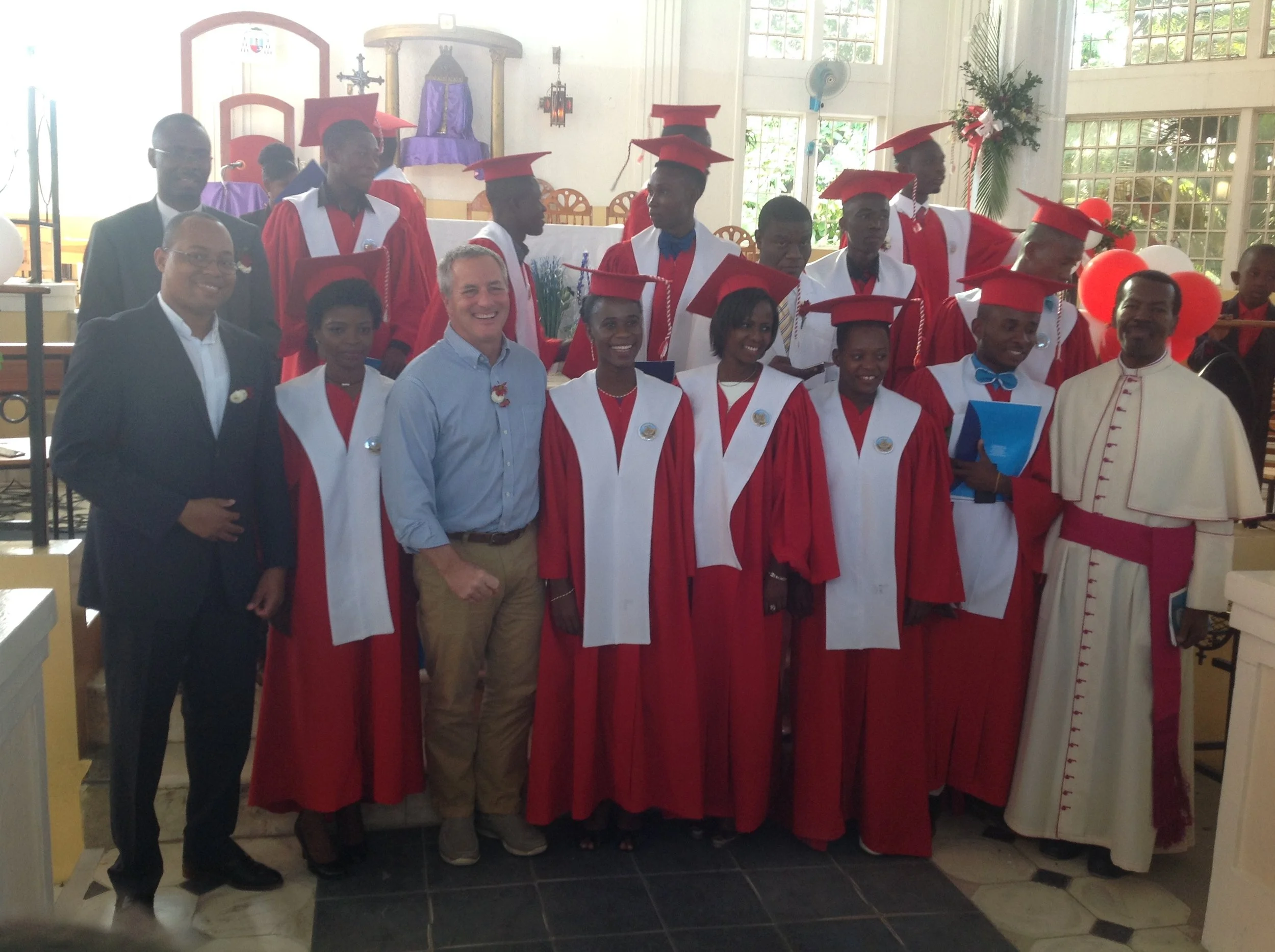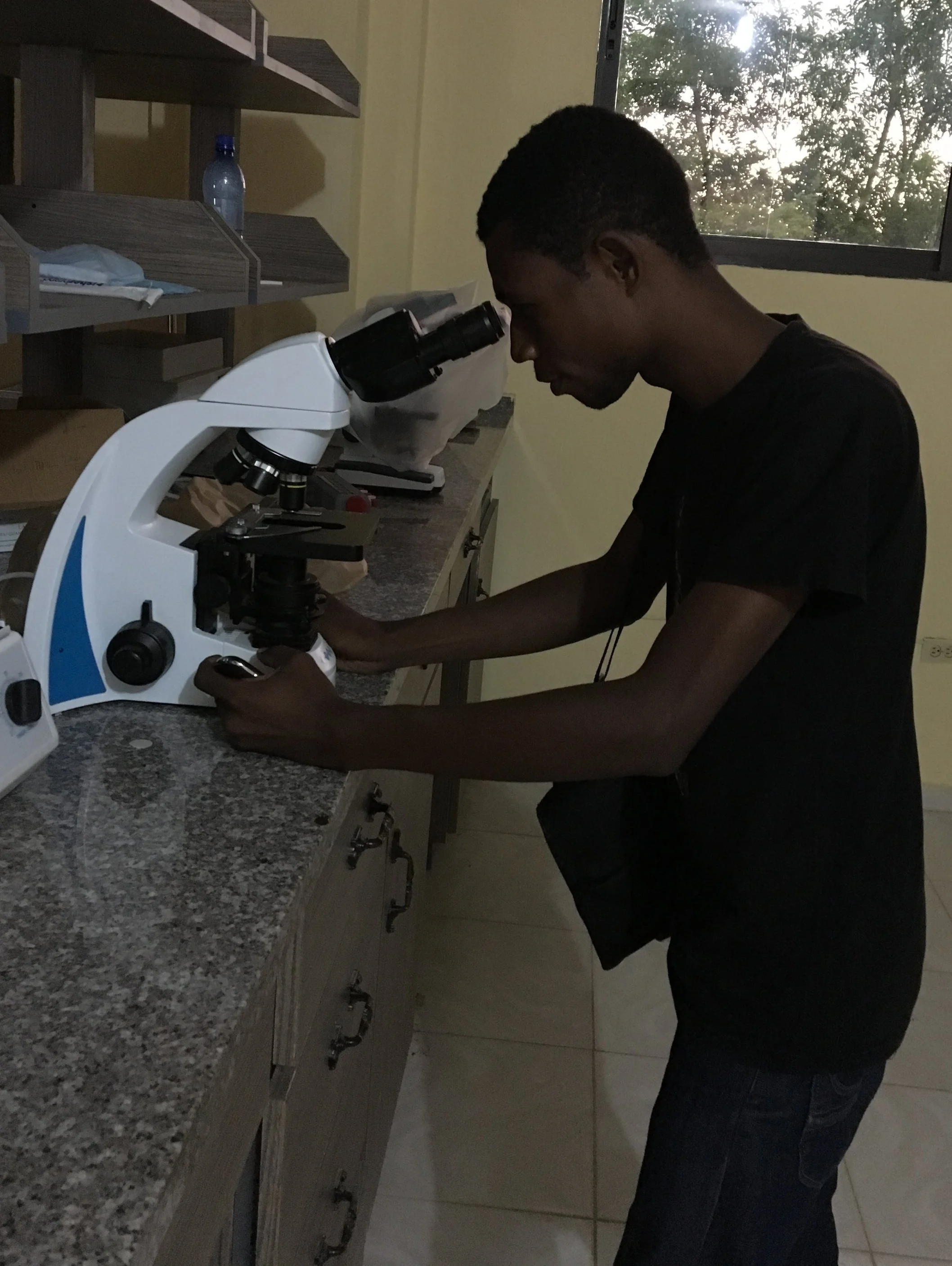Three Years Later, What's Next?
The Beginning
It's almost three years, since we had the pilot of what would become the Bioscience certificate program at Universite Notre Dame Haiti, Hinche campus. It has not been easy, but with some luck, great support from friends and sheer determination we have achieved much.
The Haitian Bioscience Initiative, like anything else, started as an idea. One, where the imagination to share our basic knowledge of science to the youth of Haiti, in order to prepare the future bioscience technicians and scientists for the country became bigger than ourselves. An idea that has a deep roots in selfless service and giving back to one's native country. As such, we seek out the support of people who could help us turn this idea into reality.
For the pilot, we had set up a crowdfunding campaign on Indiegogo, where we raised close to $2,000 to purchase basic laboratory equipment (pH meter, gel electrophoresis set, analytical balances and more,) reagents, and marketing. The pilot in every sense possible was a great success.
After the pilot
The pilot was not an end in itself, rather it was just the beginning of a journey. The purpose of the pilot was to figure out what it would take to introduce a bioscience program in Haiti,and also get a better understanding of the educational level of our target students. The results of the pilot convinced us that Haitian students were more than capable to learn and excel in a certificate bioscience program.
Way before this pilot, when the idea was transformed to a proposal it was presented to some people at the State University (UEH) to look into the possibility of offering this program to students, who did not pass the entrance admission exam for medicine or pharmacy that way they could have a certificate after two years, and a direct way to continue their studies if they do well enough. Although there was initial excitement about this possibility, but following up with the authorities at UEH was futile. Therefore after the pilot, we had to think of a quick alternative to keep the momentum going.
Luckily, we were introduced to decision-makers at UNDH-Hinche, who wanted our expertise in this area, and were also open to the idea to expand their programs' offering. That was the beginning of a great collaboration, which would lead to the eventual introduction of the two year certificate program in bioscience, alongside UNDH-Hinche other four year programs in medical biology and nursing.
Get Lucky, while doing good
We got a bit lucky. Around February 2015, as were working with UNDH-Hinche to upgrade their medical biology program. We met a group doing work with orphan kids in Hinche, who were looking for a post-secondary program for them, so that they get skills that could eventually help them get a decent job. This was our break to introduce the Bioscience program at Notre Dame Hinche.
The financial support from the group, alongside the administrative know-how of the university makes this a reality. We were able to upgrade the university's laboratory, where currently it is decently equipped to perform various medical and analytical analysis. The overall goal is to have this lab serves as reference for the Central Plateau.
Students learning about agarose gel in the lab
What's next?
Giving Haiti's lack of jobs' opportunities and innovation in all sectors, educating the youth as much as it's a necessity, also creates a conundrum: what will these educated people do upon graduation? also, the lack of qualified people to innovate and create opportunities is very real.
As for us, we want to continue to add to the pool of qualified individuals. Eventually, a critical mass of educated youth will be achieved, and among them they will find a way to create the opportunities they seek.
From this short experience, we also become very aware of the lack of properly qualified instructors in the sciences, especially people who are capable to teach at the college level. As such, we are thinking of ways to introduce continuing education opportunities for future teachers or professionals in the form of seminar and short training modules in specific laboratory techniques.
A student looking at a slide under the microscope at the lab in Hinche, Haiti.
It's a process that requires patience, and determination. It's not easy work, but we are committed. The bioscience program can be very beneficial for the development of Haiti, and more specifically in creating opportunities that will give people a change at social mobility. there is no reason why in the next decade that Haiti can't bid to be the home of a major biotech or pharmaceutical company. But in order to get there, we must invest the time and resources to train the future leaders and technicians for this industry. And this is really the main goal of the Haitian Bioscience Initiative.










